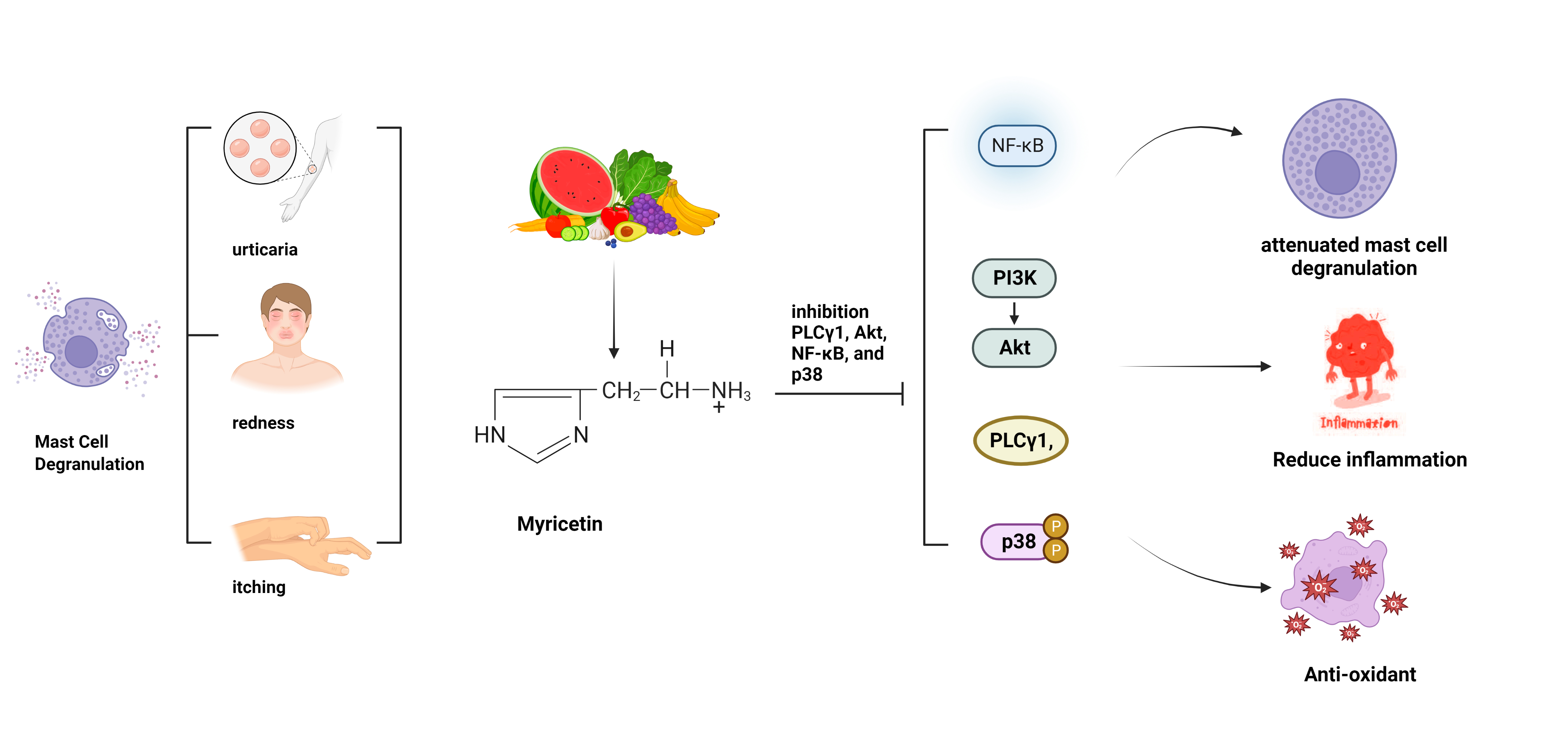Alleviation of Immunologic Contact Urticaria and Mast Cell Degranulation by Myricetin
DOI:
https://doi.org/10.55627/ppc.003.01.0328Abstract
Myricetin is a flavonoid compound found in various plants, such as berries, fruits, vegetables, and medicinal herbs. It has been studied for its potential health benefits, including its effects on immunologic contact urticaria and mast cell degranulation. Hu et al investigated the impact of myricetin and found that it may alleviate immunologic contact urticaria and mast cell. Immunologic contact urticaria is a type of allergic reaction that occurs when the skin comes into contact with certain allergens. It is characterized by the development of hives (urticarial lesions) and symptoms such as itching, redness, and swelling. The study investigated the effect of myricetin on immunologic contact urticaria using in vitro and in vivo models. Myricetin was chosen based on its known anti-inflammatory and antioxidant properties. The PI3K (phosphoinositide 3-kinase)/Akt (protein kinase B)/NF-κB (nuclear factor kappa-light-chain-enhancer of activated B cells) pathway is a signaling pathway involved in various cellular processes, including inflammation. Activation of this pathway is associated with mast cell degranulation and the release of pro-inflammatory mediators. The results of the study demonstrated that myricetin treatment attenuated immunologic contact urticaria and mast cell degranulation. Myricetin was found to inhibit the activation of the PI3K/Akt/NF-κB pathway, leading to reduced mast cell degranulation and decreased release of inflammatory mediators. Myricetin significantly inhibited PLCγ1, Akt, NF-κB, and p38 phosphorylation. These findings suggest that myricetin may have potential as a therapeutic agent for the management of immunologic contact urticarial and other allergic conditions. Phytother Res. 2023 May;37(5):2024-2035. doi: 10.1002/ptr.7726.

Downloads
Published
Issue
Section
License
Copyright (c) 2023 Editorial Staff

This work is licensed under a Creative Commons Attribution 4.0 International License.








